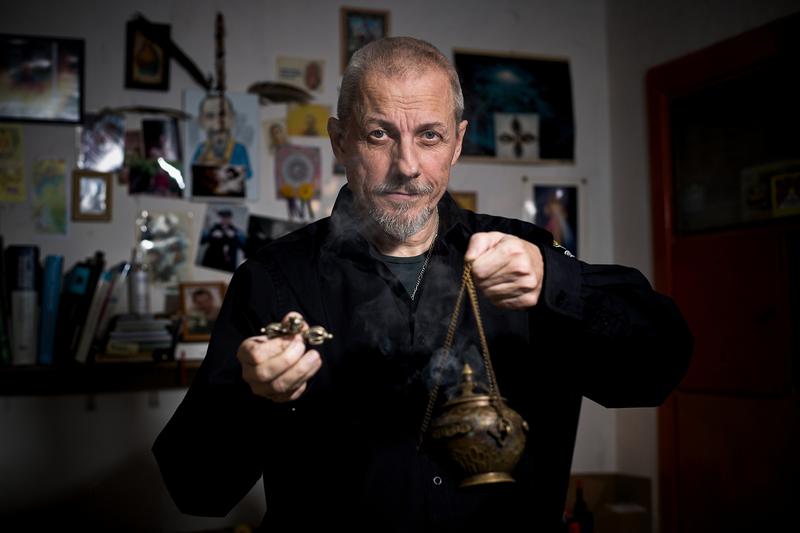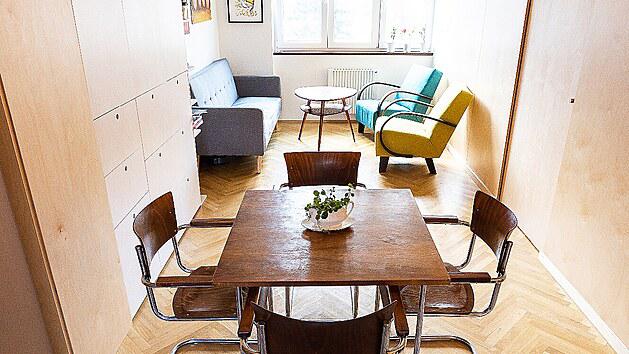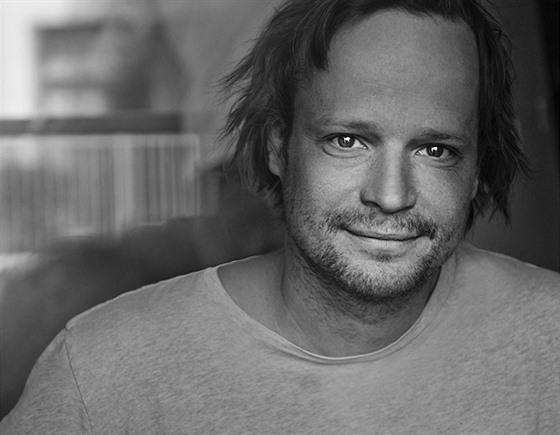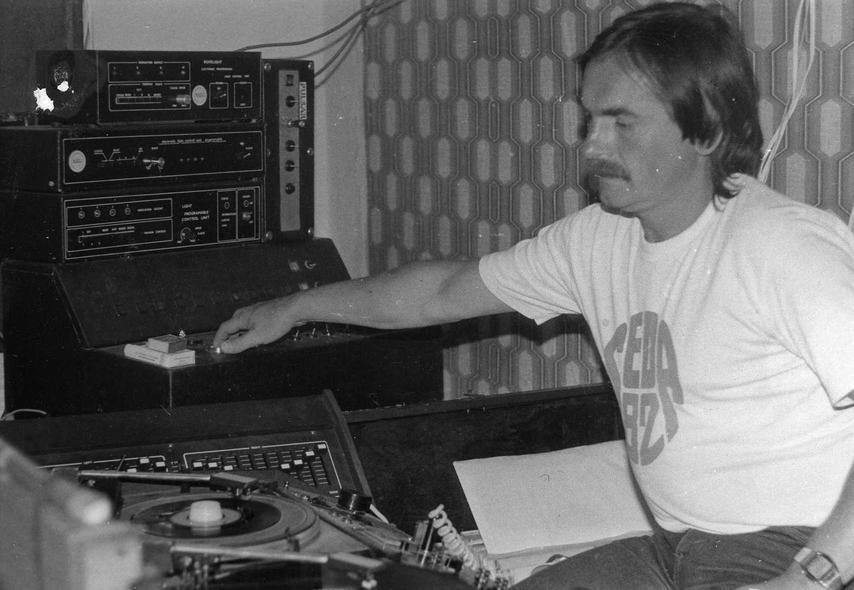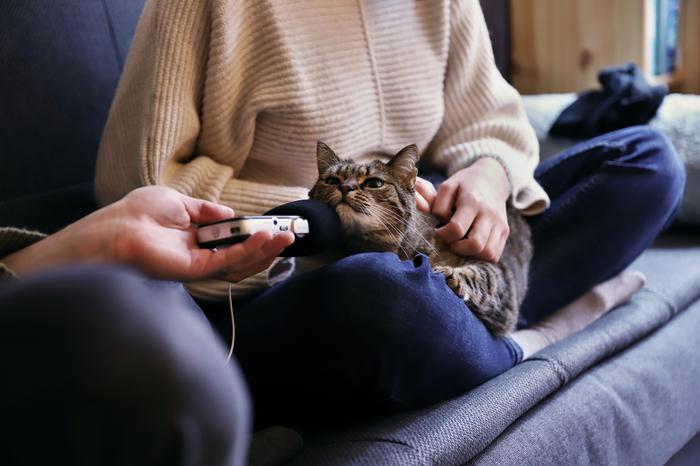
Dancer Miřenka Čechová: The path to self-acceptance is difficult
Dancer Miřenka Čechová: The road to self-acceptance is difficult
You have another premiere under your direction and that of your husband Petr Boháč. What is it like to form a creative tandem with your own man?
This is not our first directorial collaboration, we have already played several games, and as in any relationship, we have clarified our positions during this time and learned to give space to the other point of view. The fact that we are partners in our personal life also speeds up everything. We are so called tuned.
Do you always agree on everything, or is there tension sometimes? And are you more colleagues or spouses?
Of course, we often have different points of view, but they mainly concern the details. We really like to talk about the theater together, we argue, we look for the best possible solution. The passion and zeal for the cause is definitely what we still enjoy about it. And I mean that both in private life and in the theater. Actually, I don't completely separate these two spheres, life and creativity are quite intertwined here.
The autobiographical book Ballerina was created based on the practice of classical ballet, which you studied from an early age and completed your studies at the Dance Conservatory in Prague and DAMU. It also exposes harsh practices. Is that why you prefer modern dance?
Well, I'm not primarily into dancing right now. My forte is author's theater and at first it was more dance, physical, then more multimedia. Lately I've been delving into documentary approaches, but I also like experimental drama. In short, everything that transcends established forms and genres. I need to make theater that I can make a difference.
The ballets were also supposed to be a theater performance, you wrote the script for them. Have you finished it yet?
Yes, I have had it for a long time, only the covid situation changed everything and I rewrote it in a very short time into a form for the camera and an interactive online performance of metaBaletka was created. We introduced them at a time when the theater could not work live, and we maintained that condition of live contact by playing live and the audience communicating with me through chat and messages sent to my phone. I then incorporated their reactions directly into the performance.
The premiere of the live theatrical Ballets is to take place in February at the Akropolis Palace, which is my home stage. Hopefully the audience will not be afraid and will come to the theater.
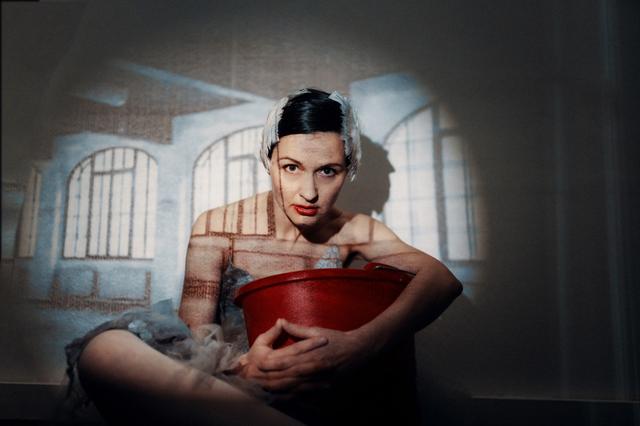
What does writing bring you?
Total and essential meaning. It is the most introverted discipline in which I can realize myself. The moment the work goes before the reader, I no longer have control over it. I can't finish anything, fix anything, which I can still do in the theater after the premiere. Writing has a magical power for me, it's about the energy I put into it at the time of its creation, about a constellation of internal and external coincidences, about an intimate dive into my own self.
You have a doctorate in directing physical and mime theater. Did the big theme of the relationship with the body lead you to this? Or was it the other way around?
Well, it was actually the desire to start directing that brought me to him. Since I didn't study directing, I was looking for a way to broaden my scope. I remember how my male colleagues deprecated when I directed the first performance in the physical theater genre. And so I said to myself that I probably need some kind of social license, some kind of confirmation that I can do it. So I focused my doctorate in this direction.
The theme of the body - untamed, free, which for a long time was a bit of a thirteenth chamber for me, began to emerge only much later.
What would you say to women who have not accepted their body and not even the extra kilos with it?
That it's hard to reset your self-evaluation in your head and go through self-acceptance that it won't be easy. Everyone tells you: Love yourself, the way you are.
That's easy to say and hard to do. The path to self-acceptance is as challenging as the acceptance of a new point of view.
It's not an aha moment, from now on I'll like myself the way I am, but it's a gradual realization of my own strength and a reevaluation of the previous stereotypes on the basis of which I evaluate myself.
The pandemic brought theatergoers a new experience – online performances. Can they convey a powerful experience to the viewer?
If they are made specifically for the camera, with some film know-how, then yes. I was lucky to work with the film director Tereza Vejvodová. But of course, theater as a living art, with everything that belongs to it, i.e. as a collective sharing that amplifies emotions, is simply irreplaceable.
Under the title of the play Man Owns Penis, Woman's Vagina, which premiered at the end of November, hides a unique view of hatred towards women and men. What made husband Petr Boháč write a play on this topic?
It was Otto Weininger himself, an Austrian philosopher from the turn of the century, whose ideas provoked Peter to elaborate. We say that Weininger must be read to disagree with him. On the other hand, I think that chauvinism is still not passé. I still encounter opinions around me that underestimate women, equal opportunities are still in sight.
Weininger expressed progressive ideas when he refuted the pathology of homosexuality, or when he described the primary germinal neutrality of each sex.
Do you think our sexuality affects us more than we are willing to admit?
I think that healthy sexuality is the basis of mental harmony. In short, if someone, for example, does not admit to a different sexual orientation, or suppresses it in himself, then he is harming himself and, ultimately, those around him.
The play also discusses gender stereotypes. To what extent did you bring your female perspective to it?
Exactly. The performance is also about gender stereotypes, about an extremely heightened view of women and men, which we make fun of at certain moments. I think my point of view is evident in it, but it doesn't sound alone.
The actors took an authorial part in the production and brought their point of view, their unique experience. Thanks to this, very authentic moments appear in the performance, which are not only about ideas from the turn of the century, but about the social climate in which we currently live.
When will society really be ready for equality between men and women?
I read somewhere that if the world develops in the way it is developing, we will achieve equality in the Czech Republic in sixty years.
You have a two-year-old son. How do you take turns babysitting with your husband?
We strive for a fifty-fifty split. But, of course, you can't count that completely. When I have a bigger project, it is my husband who spends most of his time with my son, and vice versa. When we both work together, it's a lot more complicated.
We try to balance work and family time, because we all really enjoy that time. It's learning new things together and developing a relationship with our little fun person.
yknivoNumanzeSaNyknalC

